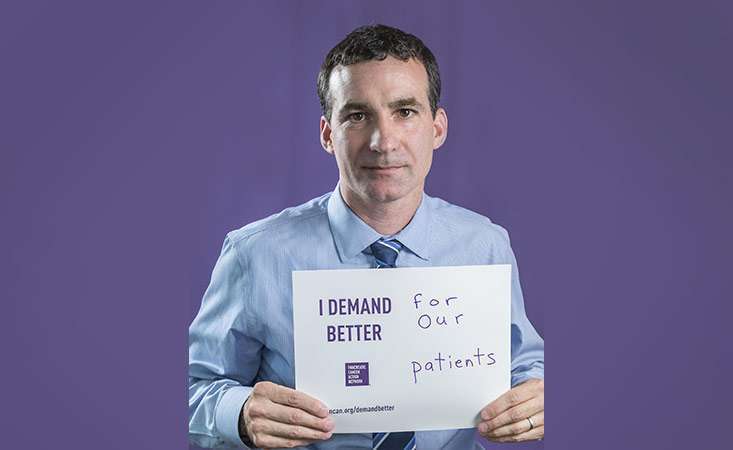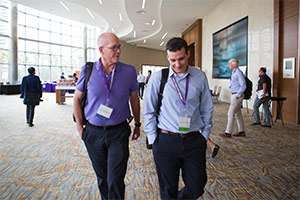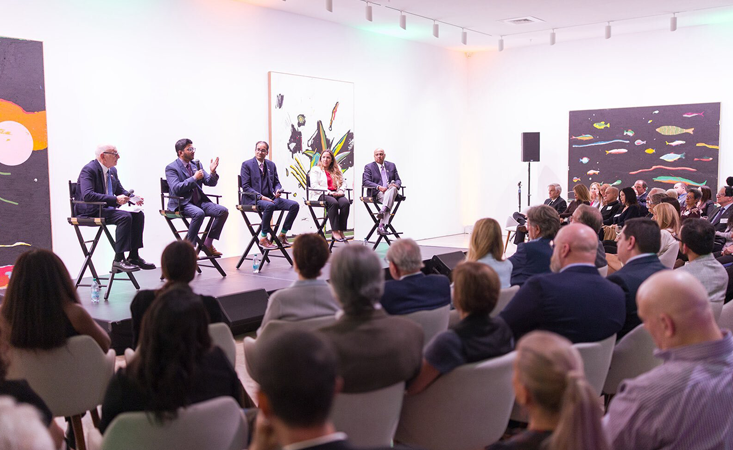
Andrew Aguirre, MD, PhD, is a medical oncologist and heads a pancreatic cancer research lab at Dana-Farber Cancer Institute.
Editor’s note: Andrew Aguirre, MD, PhD, is an oncologist at Dana-Farber Cancer Institute in Boston, where he also heads a research lab studying the biology and genetics of pancreatic cancer. He is a recipient of scientific research grants from the Pancreatic Cancer Action Network (PanCAN).
Tell us about your interest in researching pancreatic cancer.
I got involved in this field when I was a graduate student studying mouse models of pancreatic cancer. After I finished medical school and earned my PhD, I did a post-doc fellowship where I did basic pancreatic cancer genetics and biology research. That experience helped to fuel my career as an independent investigator, as did receiving research grants from PanCAN.
How do your interactions with patients affect your work in the lab?
Since I’m a clinician and a scientist, my interactions with patients define how I approach my time in the laboratory. I keep the patient at the center of my investigations, always.
I want patients to know that they are an important part of the equation as it relates to the study of the disease. We want to learn everything we can from their disease and help them in the process.
Talk about your hope for the future of pancreatic cancer.
When PanCAN’s goal to double survival by 2020 was announced a few years ago, I felt like it was a long-distance goal. But seeing the field progress, I don’t think we’re far off. There is also much hope that through clinical trials, we can learn from every individual patient’s disease and help future patients.

Aguirre, right, with fellow pancreatic cancer researcher Tony Hollingsworth, PhD
PanCAN has a vibrant network of supporters – how do they impact your work?
It’s always inspiring to meet volunteers, donors and advocates and hear how committed they are to the cause. I extend a heartfelt thank you to all of them for the work they do.
It’s really remarkable – they’ve made a difference in my own career with the funding I’ve received. Also, their funding supports patients – I refer many of my patients to PanCAN Patient Services. Aside from the information and materials patients receive, it also helps them to see that there is a huge source of support and a community out there for them beyond their own network.
Any last words?
Yes, please keeping donating. There has long been a shortage of funding in pancreatic cancer research, in particular. It’s a difficult disease to treat, and it’s difficult to study in the lab.
But because of organizations like PanCAN that have provided funding for research, there is growing momentum. It is critically important to keep this grassroots movement going with private, foundation, corporate and industry funding, since that fuels a new wave of findings and discoveries that push the field forward.














